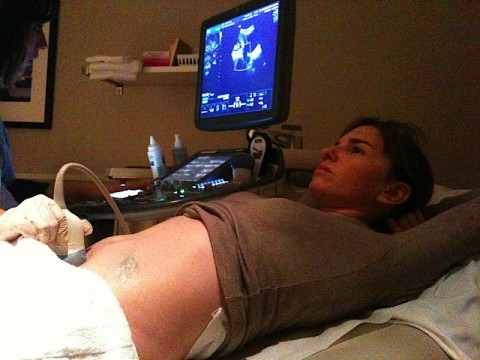A Common Test Performed During Pregnancy
An amniocentesis is a common test performed during pregnancy that can help a physician monitor the health of the unborn baby. The test is performed by collecting a sample of amniotic fluid from the womb. The amniotic fluid contains fetal cells and other chemicals that can help determine if the baby has a genetic or chromosomal abnormality. While an amniocentesis does have benefits, there are also risks associated with the procedure. Women should take time to understand what an amniocentesis is, and learn what the risks and benefits of the test are before having it done.

Why is an amniocentesis necessary?
An amniocentesis is commonly used to check for genetic or chromosomal abnormalities of the fetus. There are certain factors that may lead to a woman needing an amniocentesis, these include:
- Abnormal results from prenatal screening tests (blood test or ultrasound)
- Being over the age of 35
- Past history of children born with birth defects or chromosomal abnormalities
- Either the mother or father is a carrier of a genetic disorder
- Family history of genetic disorders
An amniocentesis may also be used during the later stages of pregnancy to determine if a baby’s lungs are mature, and it can also be used to check for uterine infections.
What can it detect?
An amniocentesis is very accurate at detecting certain chromosomal abnormalities, including trisomy 18 (Edwards syndrome), trisomy 13 (Patau syndrome) and trisomy 21 (Down syndrome). It is also used to detect genetic abnormalities, including cystic fibrosis and sickle cell disease. It can also detect neural tube defects, such as spina bifida. The test can also show if an infection is present in the uterus or if the baby’s lungs are mature enough for delivery.
How is it performed?
An amniocentesis is usually performed during the beginning of the second trimester (15 to 20 weeks of gestation). The physician will use an ultrasound to locate the baby and find pockets of fluid. After finding a pocket of amniotic fluid, the physician will clean the woman’s stomach and insert a thin needle into the womb. The physician will remove approximately one ounce of amniotic fluid. After the test, the physician will check the baby’s heartbeat, and then the fluid will be sent to a lab for testing. Genetic test results are usually available within two weeks, while neural tube defect test results are usually available within a few days.
What are the risks?
The Mayo Clinic states that there is a 1 in 300 to 1 in 500 chance of miscarriage, and the chance increases if the test is performed before 15 weeks of pregnancy. Some women may notice a sharp pain as the needle is inserted, and may experience cramping or spotting after the test. Although rare, there is also a risk of the needle injuring the baby, premature labor, infection of the uterus and leaking of the amniotic fluid.
How can a woman decide whether or not to have the test?
Choosing whether or not to have the test is a very personal decision for most women. The test can help a couple find out if their child has a genetic condition, which can help them decide whether or not they want to continue with the pregnancy. It can also help the parents plan for raising a child with special needs, as they will be able to look for resources and support groups before the baby is born. If the mother needs an amniocentesis because she is showing signs of preterm labor, the test will be helpful in determining whether or not her baby’s lungs are developed enough for the baby to breathe on his or her own. Some couples may choose not to have an amniocentesis performed, which could be for religious reasons, or because they have chosen not to have any invasive testing done during the pregnancy. Some couples may feel that they will accept the situation no matter what the outcome is, so the risks of the test outweigh the benefits. The choice to have an amniocentesis should not be made quickly, and it is important for both of the parents-to-be to discuss the risks and benefits of the test with a physician or genetic counselor before making a decision.